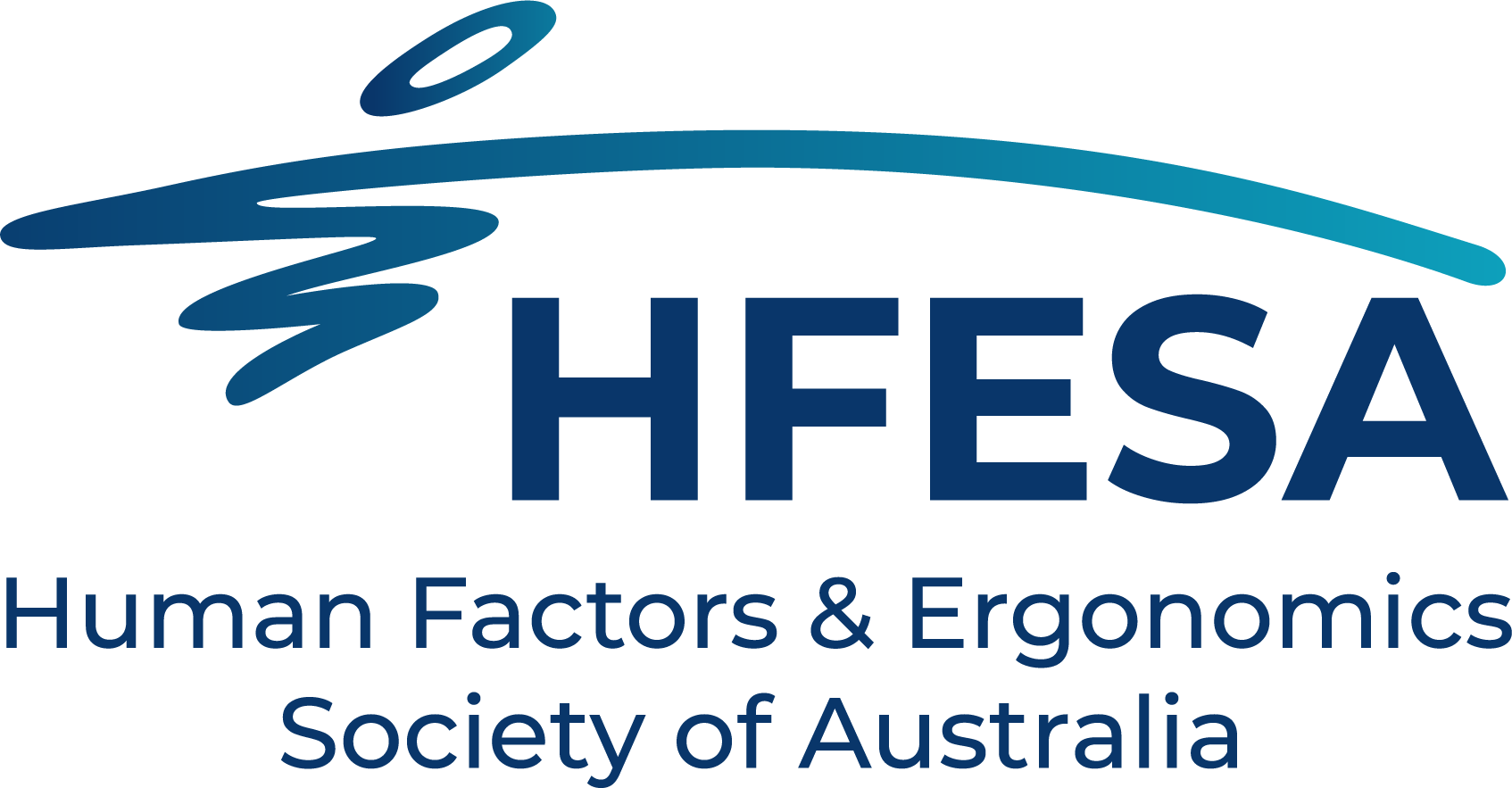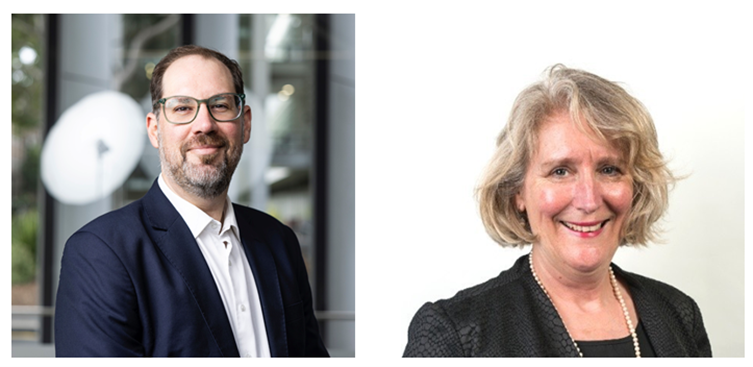The Humans Factors and Ergonomic Society of Australia (HFESA) has produced a podcast featuring a conversation between Dr Robyn Coman and Associate Professor Carlo Caponecchia. The podcasts can be accessed via the HFESA website or the HFE Hub website.
Carlo Caponecchia is an Associate Professor in the School of Aviation at The University of New South Wales (UNSW) Sydney and Co-Associate Dean Equity Diversity and Inclusion in the Faculty of Science UNSW. He has a background in psychology and works in Human Factors and Safety. He has particular interest and expertise in psychosocial risks and safe systems of work. Carlo is a member of the Standards Australia committee on Occupational Health and Safety Management and was part of the ISO TC283 working group responsible for the development of ISO45003. He is the Past President of the International Association on Workplace Bullying and Harassment.
Dr Robyn Coman is a registered Physiotherapist, Ergonomist and Senior Lecturer in the Occupational Health & Safety (OHS) discipline within the School of Health & Society at the University of Wollongong (UOW). She is a member of: Australian Physiotherapy Association (APA); Human Factors & Ergonomics Society (HFESA) (NSW Branch Committee & National Health Special Interest Group Committee); Safe Work NSW Musculoskeletal Disorder Consultative Group; UOW Centre for Occupational Public and Environmental Research in Safety & Health (COPERSH).
Identifying Psychosocial Hazards in the Workplace: Challenges and Barriers
The podcast discusses the importance of identifying psychosocial hazards in a workplace setting and outlines the difficulties that organisations face in doing so. One significant barrier is the confusion surrounding terminology, often exacerbated by existing stigmas associated with mental health. When people hear terms like “psychosocial risk,” they frequently associate it with mental ill health, obscuring the focus on preventing the sources of harm or hazards. The podcast suggests that one way to combat this is for organisations to take time to map out the terminology they use in relation to what is used in their jurisdiction. Doing so can help ensure consistent communication across the business.
Another barrier is the lack of clarity about whose responsibility it is to manage such risks. Is it the realm of Human Resources (HR) or Work Health and Safety (WHS)? The podcast asserts that it should be a collaborative effort. Both HR and WHS operate on different frameworks, but understanding how these can mesh together can help create a comprehensive approach to managing psychosocial hazards.
Risk Control Interventions: What Works and What Doesn’t
The podcast moves on to discuss risk control interventions and their effectiveness in dealing with psychosocial hazards. Contrary to popular practice, the focus should not be on individual-based solutions like stress management, mindfulness training, or resilience training. These interventions are essentially “Band-Aid” solutions that do not tackle the root cause of the problem. The podcast suggests that organisations should focus on effective interventions and risk controls that move closer to the source of the harm. This involves a shift in perspective from individual-centric solutions to systemic changes that address the work design, environment, and organisational conditions.
The Importance of Work Design in Managing Psychosocial Risks
Work design emerges as a central theme in the podcast, drawing from a human factors background. The host suggests that the most effective strategy for controlling psychosocial risks is through redesigning the work process itself. By doing a task analysis, organisations can identify potential hazards and make necessary adjustments. For example, looking at the number of people assigned to a task, the work schedule, and supervisory arrangements can all contribute to reducing psychosocial risks. The podcast emphasises that effective work design can serve multiple purposes, such as improving career development opportunities while also enhancing supervision—thereby reducing multiple hazards at once.
The podcast wraps up with a compelling analogy about a cake and icing. It argues that no amount of “icing”—or individual-based interventions like wellness programmes or yoga—can fix a bad “cake,” or a poorly designed work system. Therefore, the focus should be on creating a good cake through effective work design and only then adding the icing of individual well-being programmes.
Why Tune In?
These podcasts are a series of educational podcasts from the Human Factors and Ergonomics Society of Australia (HFESA). These podcasts focus on the connection between human capabilities and good design. Their aim is to promote the field of Human Factors and Ergonomics and provide guidance and professional development.
This podcast is relevant to professionals and academics in the fields of Work Health and Safety, Human Resources, and Human Factors and Ergonomics across various industries. Specialists like WHS managers, HR professionals, occupational psychologists, and ergonomics consultants will derive essential insights from the conversation presented. The podcast goes beyond merely discussing mental health and delves deep into understanding and managing psychosocial hazards in the workplace. It explores effective risk control interventions and emphasises the significance of work design in creating safer work environments. Therefore, it’s a must-listen for anyone invested in employee well-being and organisational safety.
Please Share
This page can be shared on social media platforms and forums (e.g. Twitter, LinkedIn, Facebook). It would also be beneficial to share the podcast with individuals or organisations interested in the topics discussed in the podcast. When sharing, please use the following hashtags: #HFES #HFESA #WorkHealthSafety #HumanFactorsandErgonomics #PsychosocialHazards #RiskControlInterventions #OccupationalPsychology #HRManagement #WorkDesign #EmployeeWellbeing #OrganisationalSafety #WHSManagers #MentalHealthStrategy #MentalHealthinWorkplace #JobTasks #WorkOrganisation #HumanResources #ErgonomicsConsultants #TaskAnalysis #SystemDesign #WorkplaceWellbeing #PodcastDiscussion #CareerDevelopment #WorkEnvironment #ManagementStrategies #OrganisationalConditions #EffectiveSupervision #WHSFramework
https://www.ergonomics.org.au/podcasts/
Prepared by Michael Dubos

